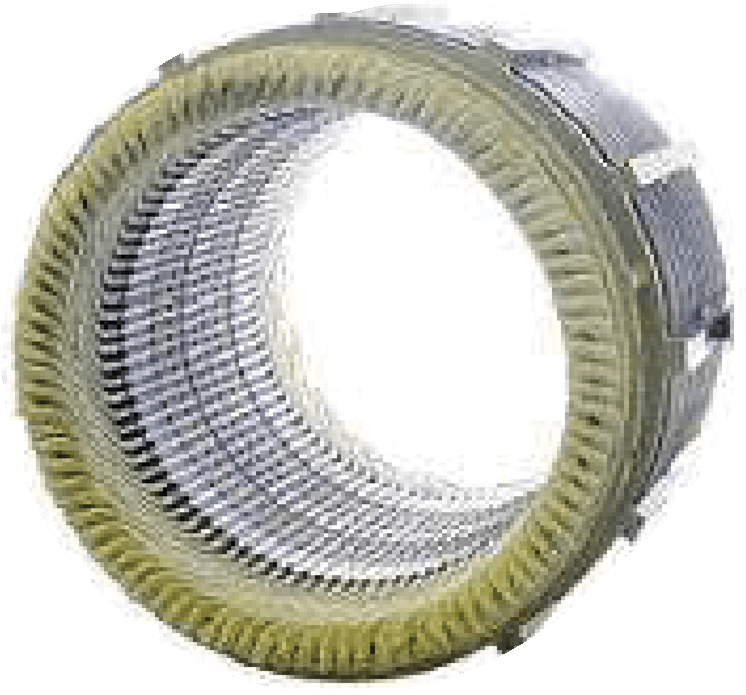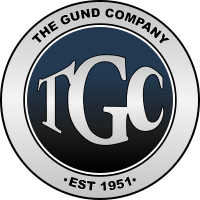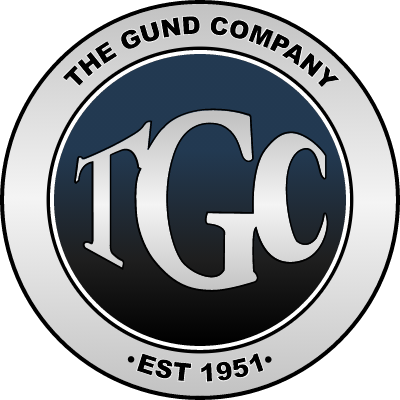Technical Resource Library
THE GUND COMPANY IS A MANUFACTURER AND FABRICATOR OF ENGINEERED MATERIAL SOLUTIONS.
We take a consultative approach to engineering materials specifically for our customers’ applications and serve as an extension of their engineering teams. Our research and development engineers focus on developing application-specific materials per our customers’ specifications and testing materials for comparative data. We have developed a collection of data stored in our material comparative data sheets and technical library of white papers.
To gain full access to our library of technical white papers, please complete the request form, and a member of our staff will be in contact with you.

Dielectric Strength
Dielectric Strength is a critical property for any material with a primary function as an electrical insulator. In simple terms, dielectric strength is the ability of an insulating material to
withstand applied electrical stress. It is defined as “the maximum electric field strength that a material can withstand intrinsically without breaking down, i.e., without experiencing failure of its insulating properties.”
See our Dielectric Strength preview.

Compressive Strength in Composite Materials
Compressive strength, also known as compression strength, is an important mechanical property for design engineers when a material is placed under direct compression loads. Compressive strength in metals is not typically found as critical stress. However, in other materials such as concrete, plastic, wood, and composite, compressive strength can easily be the critical design property if the loading is primarily in compression. The compressive strength behavior of common materials such as metals, concrete, and wood is well documented. Depending on the composite construction, composite materials exhibit some unique compressive strength behavior. This technical paper will provide an overview of compressive strength, related to composite materials.
See more on Compressive Strength.

Water Absorption
The Gund Company fabricates custom electrical insulating components for power systems equipment, including generators, transformers, switchgear, power supplies, electric motors, and related equipment. Insulation material selection can be challenging due to the factors influencing insulation system engineering and insulation component design. Our research and development engineers focus on manufacturing application-specific materials and testing materials for comparative data.
Click here for a preview.

Generator Repair Topics
The Gund Company fabricates custom insulation components to manufacture and repair power generation equipment. Recently, a large OEM sent out a technical letter indicating the problems associated with using brominated insulation materials in generator field applications such as retaining ring insulation and end coil blocking.

Grade N220
Grade N220 is a high-temperature laminate that provides outstanding performance in demanding applications.
» Excellent Mechanical Strength
» Long Term Thermal Stability
» Asbestos Free
» RoHS-Compliant
» Exceeds NEMA GPO – 1 Requirements.

High-Temperature Glass Epoxy
Materials technology continues to evolve, offering higher performance materials for more demanding customer applications. Often, manufacturers fail to review their specifications to take advantage of these newer materials that provide improved performance at a lower cost.
Unfortunately, there is a tremendous amount of confusion in the marketplace regarding the thermal performance of insulation materials. A related document from The Gund Company, “Thermal Performance of Insulation Materials – A Review of Terminology & Methods,” addresses this topic specifically.

MagNohl
MagNohl is a magnetic wedge material that performs excellently in demanding induction motor and wind generator applications:
» Excellent Mechanical Strength
» Long-Term Thermal Stability
» Outstanding Magnetic Properties
» RoHS-Compliant.

Nomex
The Gund Company custom fabricates a wide range of insulation materials, based on the unique requirements of our customers. Our wide range of materials and fabrication capabilities offer numerous material options to our customers. Our approach to material selection starts by evaluating the customer’s application and specifying the material that suits their mechanical and electrical specifications. To help our customers learn more about aramid paper insulation materials like Nomex®, we have prepared this technical white paper.

Rotoguard Slot Insulation
The Gund Company proudly presents RotoGuard Slot Insulation as a high-performance alternative for your slot insulation requirements. We have combined aerospace technology and proven electrical insulation materials to create RotoGuard Slot Insulation. This technology has been tested and established over a nine-year period to ensure that it can meet your most demanding requirements.

Semi-Conductive Materials for Generator Applications
Large rotating machines contain many different insulating materials, providing specific protection to maintain efficiency and prevent damage during regular operation, upset conditions, and idle states. One type of specially-formulated insulation, semi-conductive, serves a structural purpose, but most importantly, corona/partial discharge protection.

Standoff Insulator Application Considerations
Standoff insulators are UL-recognized as panelboard and switchboard accessories according to the requirements in UL 891 Annex G. Annex G of UL 891 allows for switchboard sections and current transformer compartments to achieve a high Short-Circuit Current Rating (SCCR), without having to test. The advantage for the switchboard manufacturer is that they can have numerous custom bus bar configurations without having to test each one to get up to a 100kA SCCR. It also allows the manufacturer to use a wide variety of standoff insulators, provided they comply with the brace and support requirements of UL 891 Annex G. The manufacturer may also substitute standoff insulators without having to perform any SCCR testing, provided they are UL-recognized to meet the needs in UL 891 Annex G.

Thermal Performance of Insulation Materials
Over the years, there has been considerable debate on determining and classifying the thermal performance of insulation materials used in electrical power systems equipment and related applications. Unfortunately, there is a tremendous amount of confusion in the marketplace regarding the thermal performance of insulation materials.

Transformer Spacer Stick Comparative Data Sheet
Grades N155 and N220 are high-temperature pultruded glass fiber-reinforced thermoset resin rods that provide outstanding performance in demanding applications:
» Excellent mechanical strength
» Long-term thermal stability
» RoHS-compliant
» Cost-effective solution.

Transformer Spacer Stick Compressive Strength Study
The Gund Company is consistently testing the products we manufacture and sell to provide engineers with the data they need. While it is widely known that the strength of a material is reduced at higher temperatures, the data for speciĮc properties and conĮgurations is not always available. The most common property tested at higher temperatures is Ňedžural strength. However, some mechanical properties are more negatively impacted by increasing temperature than others. For example, tensile strength is a reinforcement-driven property and typically does not show as strong a response to temperature as compressive strength, a matrix-driven property.

UL 1446 for DTT 622010
The purpose of this document is to present the process used by The Gund Company to assist our customers in adding minor insulation materials to their dry-type transformer insulation systems to increase their sourcing flexibility, shorten their material lead times, lower their material inventories, and reduce their material costs.

UL 746 UL 1446
The purpose of this document is to present the process used by The Gund Company to assist our customers in adding equivalent insulation materials to their UL-recognized electrical and electronic equipment.

What’s in a Name? A Review of Material Data Properties
In today’s technology-driven market, it is essential to understand the materials being specified and used in electrical and electronic equipment applications. The cost of failure is incredibly high in terms of safety, not to mention the cost in terms of downtime, productivity, and actual direct cost.

To gain full access to our library of technical white papers, please complete the request form, and a member of our staff will be in contact with you.
Click here to log in to our technical library.

